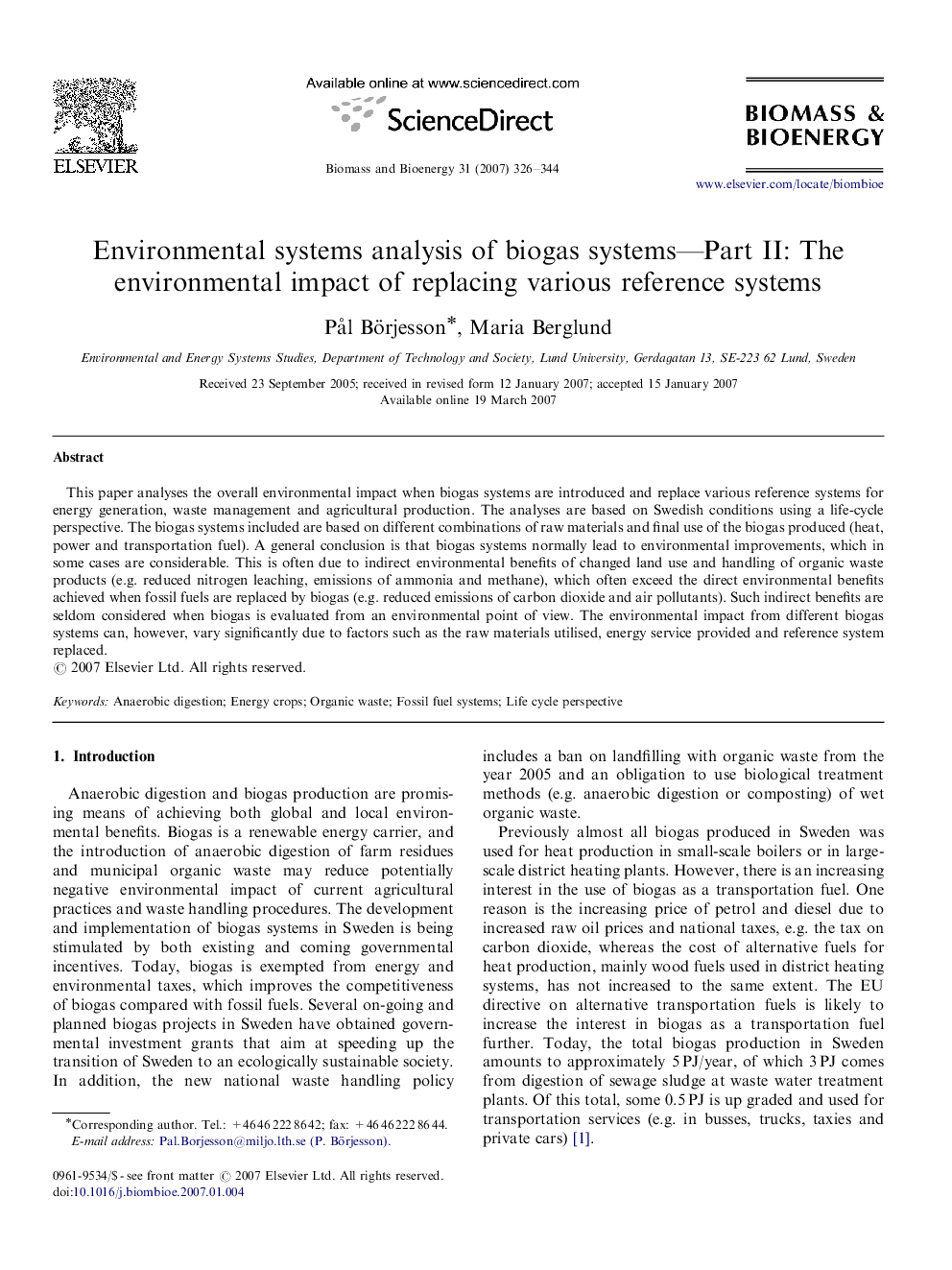| Article ID | Journal | Published Year | Pages | File Type |
|---|---|---|---|---|
| 678645 | Biomass and Bioenergy | 2007 | 19 Pages |
Abstract
This paper analyses the overall environmental impact when biogas systems are introduced and replace various reference systems for energy generation, waste management and agricultural production. The analyses are based on Swedish conditions using a life-cycle perspective. The biogas systems included are based on different combinations of raw materials and final use of the biogas produced (heat, power and transportation fuel). A general conclusion is that biogas systems normally lead to environmental improvements, which in some cases are considerable. This is often due to indirect environmental benefits of changed land use and handling of organic waste products (e.g. reduced nitrogen leaching, emissions of ammonia and methane), which often exceed the direct environmental benefits achieved when fossil fuels are replaced by biogas (e.g. reduced emissions of carbon dioxide and air pollutants). Such indirect benefits are seldom considered when biogas is evaluated from an environmental point of view. The environmental impact from different biogas systems can, however, vary significantly due to factors such as the raw materials utilised, energy service provided and reference system replaced.
Related Topics
Physical Sciences and Engineering
Chemical Engineering
Process Chemistry and Technology
Authors
PÃ¥l Börjesson, Maria Berglund,
